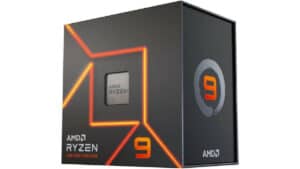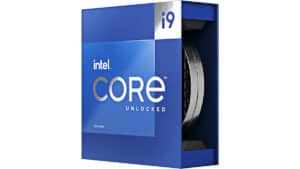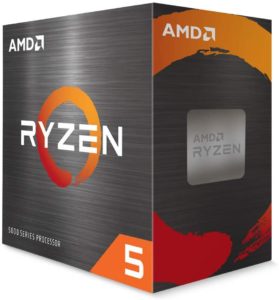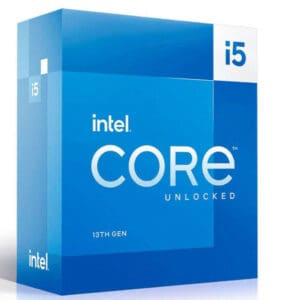Best CPUs for game development

Game development is a complex process that requires a powerful system to handle various software packages and disciplines. With so many different tools involved, like Unreal Engine, Unity, and more, it can be challenging to know which CPU will give you the best performance for your specific needs. In this article, we’ll help you find the best CPU for game development, based on the majority of needs that the task requires. With these CPUs, your rig will be capable of handling the activities like a pro; however, keep in mind that the higher your need the higher the price and specs.
Products at a Glance
Features and Considerations
When it comes to game development, the CPU plays a crucial role in handling tasks such as compiling shaders and code, 3D sculpting, and light baking. While some tasks are being offloaded to the GPU, the CPU is still a major factor in overall performance. The ideal CPUs for game development depend on your specific focus within the game design workflow.
For example, if you work with Unreal Engine, a powerful CPU like a Threadripper to maintain a good workflow. However, if you’re more focused on asset creation or working on smaller games, you’ll be great with a less specific high-end CPU, so you can go with the more mainstream processors that, nowadays are almost as powerful.
Just keep in mind that you’ll need a good set of core counts to handle multiple tasks simultaneously, as well as good clock speed and multithreading capability to ensure your CPU can read and process every single tasks game development requires to be performed at the same time
Product Reviews
- Great single-core and multi-core performance
- PCIe 5.0 support
- Great for 4K video editing
- DDR5 and AM5 needed
The AMD Ryzen 9 7950X is our Editor’s Choice among the best CPUs for game development. This beast of a processor comes with 16 cores and 32 threads, providing ample power for handling complex game development tasks. With a P-Core base clock speed of 4.5GHz and a boost clock speed of 5.7GHz, this CPU is built for speed and efficiency.
The Ryzen 9 7950X boasts an impressive 80MB of cache (16MB L2 and 64MB L3), which is a 44% advantage over Intel’s L3 cache. Cache plays a crucial role in enhancing the performance of a CPU by offering quick access to frequently used data, reducing the time it takes to access data stored in main memory, and allowing the CPU to work more efficiently.
Support for DDR5-5200 memory adds to the overall performance of the Ryzen 9 7950X, making it an excellent choice for game developers who need a powerful and efficient processor. With a TDP of 170W, this CPU ensures that it can maintain its performance without overheating.
- High amount of cores
- Hybrid architecture
- Large 36MB L3 cache
- High price point
- High TDP of 125W
- May be overkill for users who don't require such high processing power
The Intel Core i9-13900K is our pick for the best Intel CPU for game development. This processor stands out for its hybrid architecture, featuring 8 P-Cores and 16 E-Cores, providing a fantastic balance between single-threaded and multi-threaded performance. This versatility makes it a powerful choice for handling complex game development tasks.
As a part of Intel’s 13th-generation technology built on 10nm lithography, the i9-13900K comes with an impressive 24 cores and 32 threads, making it capable of handling even the most demanding workflows. With a base frequency of 3 GHz and a boost frequency of 5.8 GHz, this CPU ensures fast processing and a smooth experience.
Furthermore, its 36 MB L3 cache enables quick access to frequently used data, improving overall performance. In summary, the Intel Core i9-13900K is a reliable and powerful option for game developers seeking the best Intel has to offer in terms of performance and versatility.
- Excellent price-to-performance ratio
- Strong multi-threaded capabilities
- Energy-efficient
- Lower base and boost clock speeds
The Ryzen 5 5600X is our top choice for the best budget CPU for game development. This processor, part of AMD’s Ryzen 5000 series, offers excellent performance without breaking the bank, making it ideal for game developers who need a capable CPU but don’t want to overspend.
Sporting 6 cores and 12 threads, the Ryzen 5 5600X provides more than enough power for most game development tasks. It boasts a base clock speed of 3.7 GHz and a turbo boost frequency of 4.6 GHz, ensuring that it can handle demanding workloads and provide smooth performance. Furthermore, its 35 MB combined cache (32 MB L3 and 3 MB L2) allows for quick access to frequently used data, enhancing overall efficiency.
In conclusion, the Ryzen 5 5600X is an excellent option for game developers on a budget. It offers a great balance of performance and affordability, making it a top choice for those who want to get the most bang for their buck without sacrificing performance in their game development projects.
- Good value for its price range
- Excellent multi-threaded performance
- Supports overclocking
- Lower base clock speed
- Higher TDP compared to some other budget CPUs
The Intel Core i5-13600K is a fantastic budget-friendly option for game development, offering impressive performance without breaking the bank. This processor features 6 cores and 12 threads, providing excellent multi-threaded performance for handling various game development tasks. Its base frequency of 3.4 GHz and a boost frequency of 5.1 GHz ensure that it can handle both single-threaded and multi-threaded tasks with ease.
One of the key selling points of the Core i5-13600K is its excellent value for the price. It offers performance that rivals more expensive CPUs, making it an outstanding option for those on a tighter budget who still need a capable processor for their game development projects. Additionally, the Core i5-13600K supports overclocking, allowing users to push its performance even further, optimizing it for their specific workloads.
How we picked the best CPU for game development
We have conducted extensive research to determine the best CPU for game development. We considered factors such as the number of cores, clock speed, and compatibility with various software packages. By analyzing different CPUs’ performance in real-world game development scenarios, we’ve been able to create a list of recommended hardware tailored for game dev workstations. This way, you can ensure that your system is optimized for your specific needs, whether you’re working with Unreal Engine, Unity, or any other game design software.
How important is CPU for game development?
The CPU is crucial for game development as it handles various demanding tasks such as compiling shaders and code, 3D sculpting, and light baking. While some tasks are offloaded to the GPU, the CPU remains a significant factor in determining the performance and efficiency of your game development workstation. Choosing the right CPU is essential to ensuring a smooth and seamless workflow while working on different aspects of game design.
How many CPU cores do I need for game development?
The number of CPU cores required for game development depends on the specific tasks and software you work with. Most game development engines, such as Unreal Engine and Unity, benefit from multi-core CPUs as they can handle multiple tasks simultaneously, speeding up the development process. For smaller projects or tasks that focus more on single-threaded performance, such as 3D modeling, a CPU with fewer cores but higher clock speed may be sufficient. In general, a CPU with at least 6-8 cores is recommended for game development, but opting for a higher core count, like 12-16 cores, can provide even better performance, especially in multi-threaded tasks.
Our Verdict
In conclusion, selecting the best CPUs for game development depends on your individual needs, budget, and specific workflow requirements. Our top picks, including the versatile AMD Ryzen 9 7950X, the powerful Intel Core i9-13900K, the budget-friendly Ryzen 5 5600X, and the cost-effective Intel Core i5-13600K, cater to a wide range of game development scenarios. Each of these CPUs offers a unique balance of performance, features, and price, making them excellent choices for game developers at various stages of their careers. Remember to evaluate the specific demands of your development tasks and choose a CPU that best suits your needs to ensure a smooth, efficient, and enjoyable game development experience.






